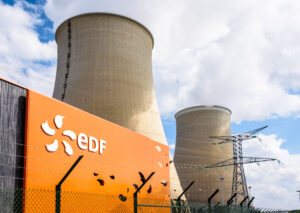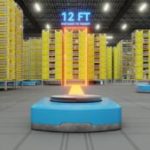
France plans a full nationalisation of EDF in an attempt to help the state electricity giant overcome a crisis linked to spiralling debt, falling revenue and an energy price cap, the French prime minister said yesterday.
It is not yet clear what the move means for Britain’s future energy security because EDF wants to build a two-reactor nuclear power station at Sizewell in Suffolk.
Laying out her government’s legislative programme before the French national assembly, Élisabeth Borne said the state would take a 100 per cent stake in the group, which is already building two new reactors at Hinkley Point in Somerset. The state’s current holding is 83.88 per cent.
Borne, 61, said: “This evolution will enable EDF to carry out projects that are ambitious and indispensable for our future as soon as possible.”
She placed the move in the context of President Macron’s drive to ensure that France can meet its own energy needs, suggesting that the stakes were as high as in 1946, when EDF was founded as the country strove to rebuild itself following the Nazi occupation.
“We can no longer depend on Russian gas and petrol,” the head of government told MPs. “We need to have full control of our electricity production and of its performance. We must ensure our sovereignty in the face of the consequences of the war [in Ukraine] and of the colossal challenges ahead.”
It is not yet clear what the nationalisation means for EDF’s British plans and assets. EDF is the majority owner of Britain’s existing nuclear power plants and operates a domestic energy supply business with about 3 million household customers.
As well as building Hinkley Point C, EDF is in talks with the government over a funding deal for a £20 billion sister station at Sizewell.
Business BriefingIn-depth analysis and comment on the latest financial and economic news.One-click sign up.
EDF is expected to retain a 20 per cent stake in Sizewell and wants to secure UK government agreement for the taxpayer to take a further 20 per cent stake this month.
The French government did not say whether it plans to make an offer for the 16 per cent stake in EDF the state does not already own, or to introduce legislation that would force shareholders to sell up.
Officials say the full nationalisation will help EDF to find financing for the six new reactors that Macron has pledged to build at an estimated cost of €46 billion. The country already has 56 reactors, which supply 70.6 per cent of its electricity.
The plan comes with Borne promising that France will be the first world power to end the use of fossil fuels completely. Yet analysts say the decision to withdraw EDF from the stock market has been forced upon the government by the group’s alarming financial situation.
EDF had a debt of €44 billion in 2021, which analysts at Citi, the investment bank, say could rise to €65 billion by the end of this year. With the group’s works council warning that “EDF might not get through to the end of the year”, the government was under pressure to act.
Read more:
French state nationalises energy giant EDF






